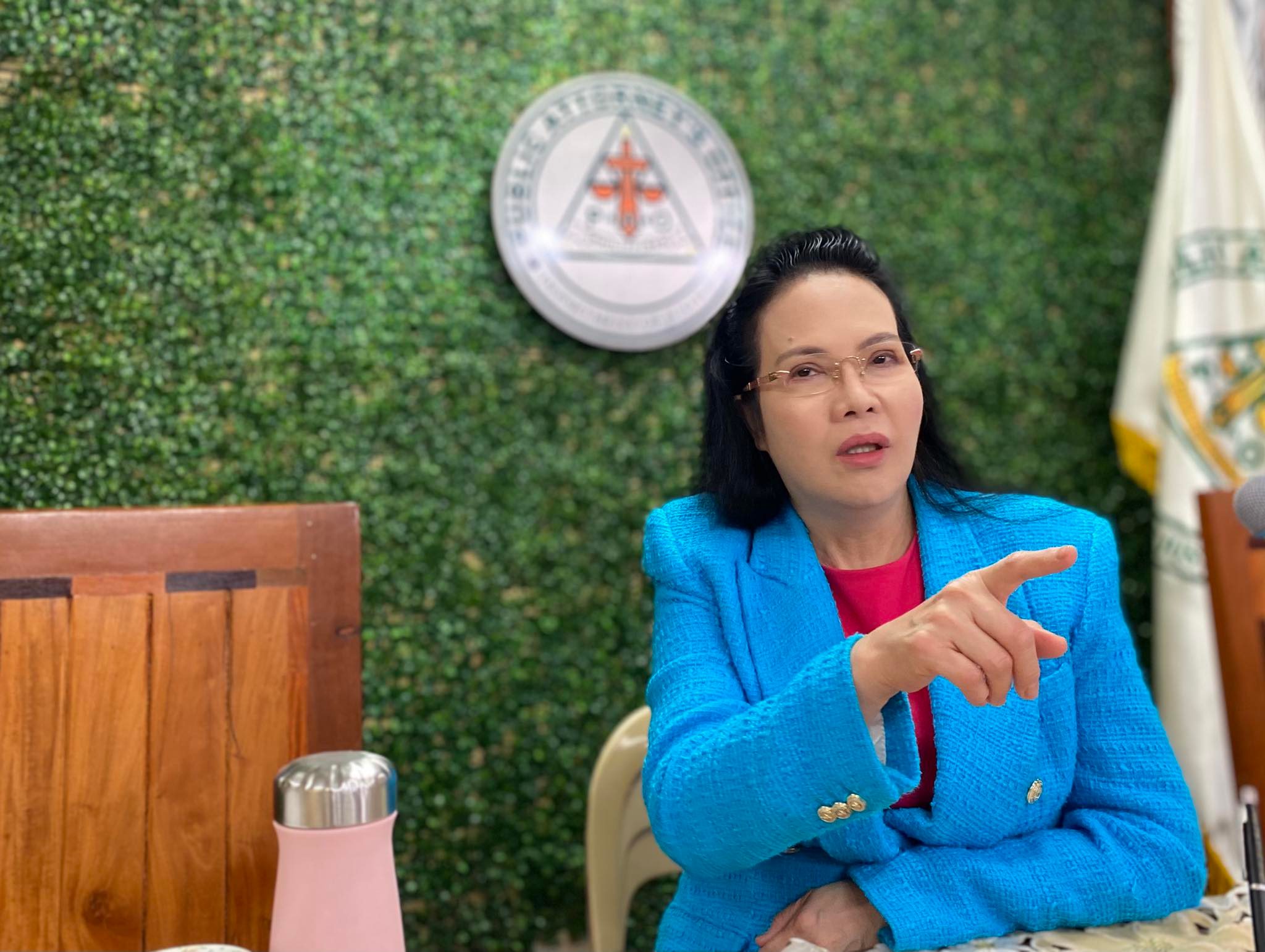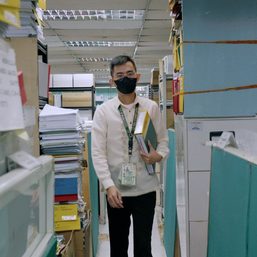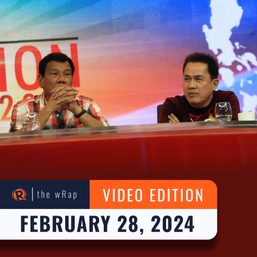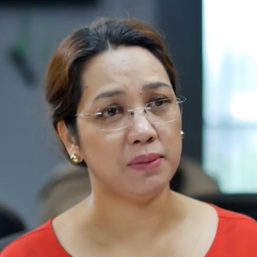SUMMARY
This is AI generated summarization, which may have errors. For context, always refer to the full article.

MANILA, Philippines – Supreme Court (SC) justices unanimously found Public Attorney’s Office (PAO) chief Persida Acosta guilty of indirect contempt, the High Court announced on Tuesday, February 27.
The SC said the magistrates found Acosta guilty of indirect contempt for violating section 3(d), rule 71, of the Rules of Court, and of grossly undignified conduct prejudicial to the administration of justice under section 33, canon VI of the Code of Professional Responsibility and Accountability (CPRA) – the new code of conduct for lawyers.
Acosta was ordered to pay P30,000 for the indirect contempt, and P150,000 for grossly undignified conduct prejudicial to the administration of justice “with a stern warning that a repetition of the same or similar offenses shall be dealt with more severely.”
Under the Philippine laws, indirect contempt is a type of contempt committed out of the court’s presence. Acosta was found guilty for her action that fell under “any improper conduct tending, directly or indirectly, to impede, obstruct, or degrade the administration of justice.”
“It was determined that Atty. Acosta’s statements and innuendos on her Facebook page, which was accessible to the public, attributed ill intent and malice to the Court,” the SC said.
“The Court also found that by launching a public campaign against the new conflict of interest rule for the PAO using public attorneys and the PAO’s staff and clients and publicizing the contents of the PAO’s letters to Chief Justice Alexander G. Gesmundo requesting the deletion of the same rule, Atty. Acosta tried to sway the public opinion in order to pressure the Court into yielding to her position,” it added.
The SC’s punishment against the PAO chief stemmed from the latter’s opposition against the conflict of interest rule in the new lawyers’ code of conduct, which eventually became section 22, canon III of the CPRA. In a letter addressed to Chief Justice Alexander Gesmundo, Persida’s office claimed that the CPRA’s new provision allows two PAO lawyers to represent opposing parties in court cases.
The PAO also noted that it also “puts at risk the life and limb of the handling public attorneys” because clients could suspect that their counsels “double-crossed them.”
Before the resolution on Acosta’s case, the SC, in two different instances last year, ordered the PAO chief to explain her tirades and actions against the new CPRA. Acosta later apologized to the High Court in a video posted on her Facebook page.
Aside from indirect contempt, Acosta also violated some provisions of the new CPRA. Acosta’s acts also violated sections 2 and 14, canon II of the CPRA, which requires lawyers to respect the tribunals and submit grievances through appropriate remedy. The court also found that the PAO chief violated the CPRA rules on the responsible use of social media.
For issuing Office Order No. 96, series of 2023, Acosta also violated section 2, canon II, and section 2, canon III, which state that lawyers have the duty to observe and respect the court and legal processes. The said order issued by Acosta stated that public attorneys must reconcile the CPRA provision with the provisions of article 209 of the Revised Penal Code, as amended by Section 36 of Republic Act No. 10951.
RA 10951 discusses betrayal of trust by an attorney or a solicitor. This meant Acosta wanted PAO lawyers to adhere to the new CPRA, while minding the law punishing betrayal of trust by a lawyer.
“Instead of enjoining public attorneys to strictly comply with the new conflict of interest rule for the PAO, the Office Order instigated disobedience to the rule and implied that the Court, by adopting the new conflict of interest rule for PAO, unduly exposed the PAO lawyers not only to criminal and administrative liability, but also to physical danger,” the SC explained.
Indirect contempt vs. Erfe
Acosta was not the only PAO official punished by the High Court. On Tuesday, the SC said its en banc also found PAO forensics unit director Erwin Erfe guilty of indirect contempt for accusing the SC of judicial tyranny.
Erfe, a lawyer, made the accusation after the SC issued its resolution denying the PAO’s request to delete the conflict of interest provision in the new CPRA, and asking Acosta why she should not be held for indirect contempt.
The SC ordered Erfe to pay P10,000 fine for indirect contempt, and reprimanded him “with a stern warning that a repetition of the same or similar offense will be dealt with more severely.” The High Court took into consideration’s Erfe’s expression of remorse after the latter apologized and explained his side.
In explaining the decision against Erfe, the SC said the lawyer’s remark has no basis in fact or law, so it fell outside of fair criticism. The High Court added that Erfe’s claim was calculated to affect the public confidence in SC and degrade the administration of justice.
“The Court likewise held that Atty. Erfe’s conduct fell short of the proper respect due to the Court. By baselessly accusing it of judicial tyranny, he exposed the Court to public ridicule and mockery. Furthermore, his conduct was violative of the sub judice rule, because it not only attempted to sway the public perception against the Court, it likewise imputed improper motives against its Members,” the SC added. – Rappler.com
Add a comment
How does this make you feel?










There are no comments yet. Add your comment to start the conversation.